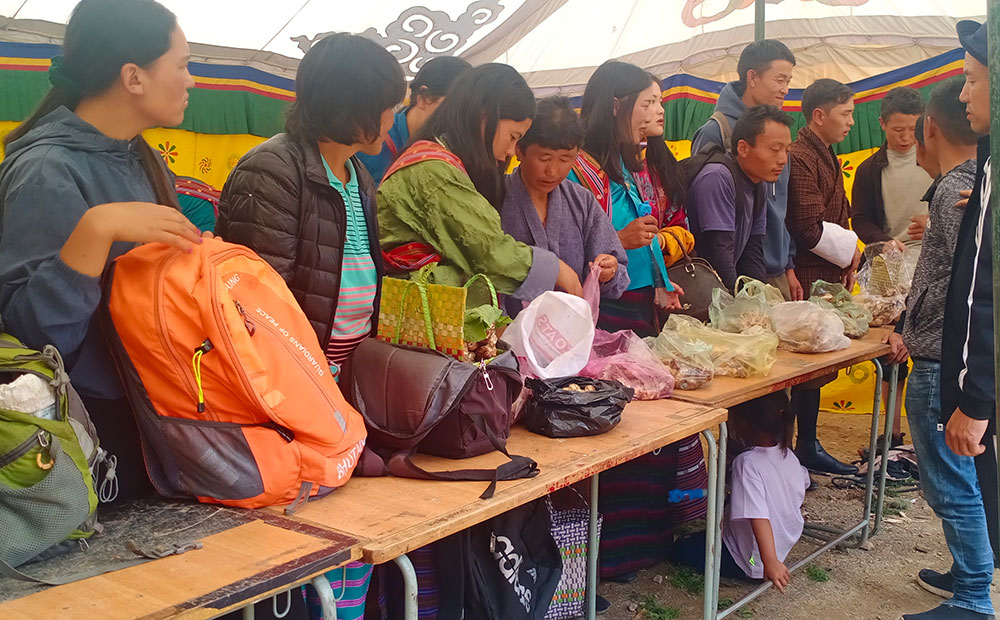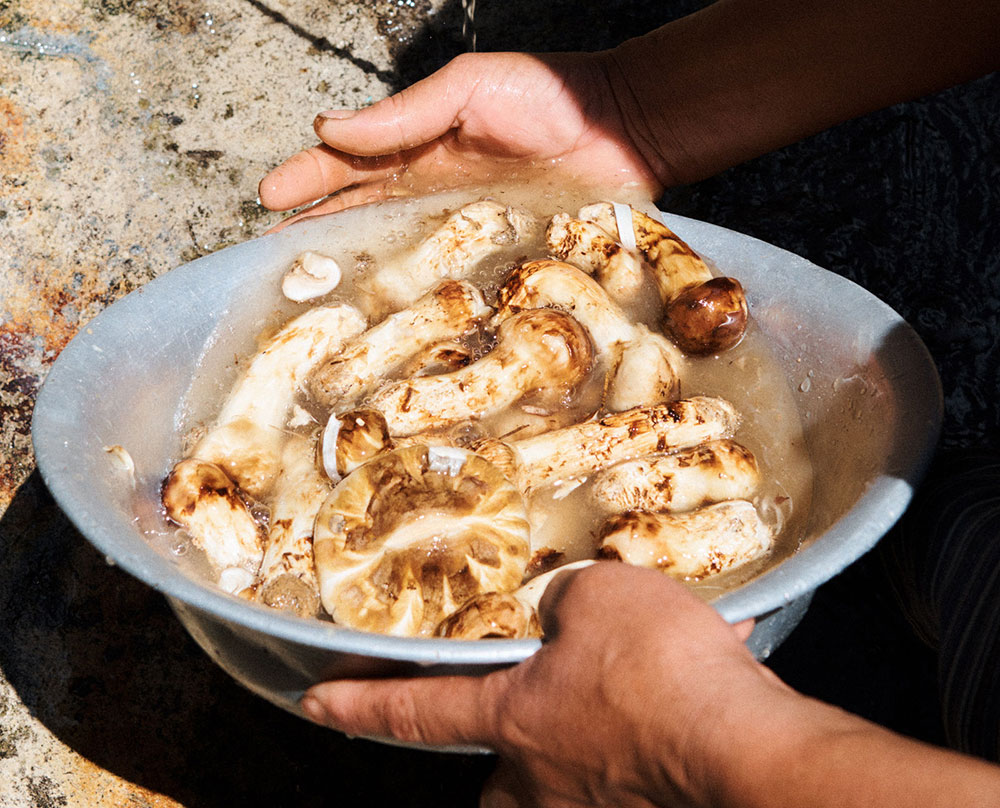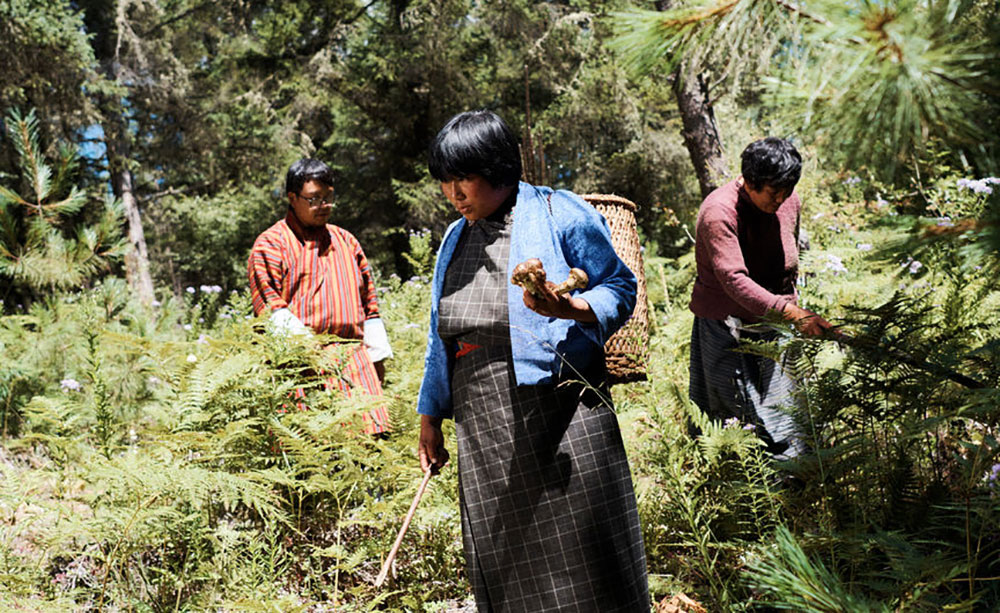Sherab Lhamo
Located at the base of Dagala range, Matsutake mushroom commonly known as Sangay shamu is a gold mine for the locals of Genekha in Thimphu. Every year, despite risks of wild animal attacks, the locals forage the thick forests for the highly-priced mushrooms from August to October 15. But they say that the quantity is decreasing every year.
A local resident, Sangay Wangchuk, who has been harvesting mushrooms for the last 31 years could only harvest 0.5 kg this year. In the past, he could harvest about three kilograms. “The quantity of mushrooms has reduced due to over collection.”
Another harvester, Sangay, said that compared with last year, the harvest was lesser this year, which he attributes to the incessant rain. He has been harvesting mushrooms for the past 16 years.
Nakum, a harvester, said that the price of mushrooms has increased by Nu 200 this year. A kg of matsutake costs Nu 17,000. The quality of mushrooms is divided into three categories, according to the export requirements.

96 varieties of mushrooms were on display at the festival
Genekha Gup Kencho said that due to climate change, the conditions are also becoming unfavourable for mushroom growth. Overcollection and unsustainable methods of collection such as uprooting the fungus is a major issue.
Before the harvest season, the collectors are advised about the sustainability issues, he added. “In five years, matsutake mushrooms might be rare.”
For two days in August, locals come together to celebrate the Matsutake festival. This year, the festival that ended yesterday saw people from across the dzongkhag, with most of the produce bought by the Amankora chain hotels.

The group consisting of 126 households from the gewog looks after 2.118 acres of state-reserved forest allocated for mushroom collection. The area was leased to the residents by the dzongkhag administration in 2009.
“Matsutake is a primary source of income for the villagers,” said Phuntsho Namgay, one of the festival organisers.
Each household earns about Nu 300,000 a year from the sales.
At the festival, the National Mushroom Centre (NMC) displayed 96 varieties of mushrooms. NMC programme officer Sabitra Pradhan, said that there are plans to train locals on mushroom business on August 19.
The Department of Tourism funded the festival to establish market linkages, promote awareness, attract tourists, and ensure long-term visibility of the festival.


